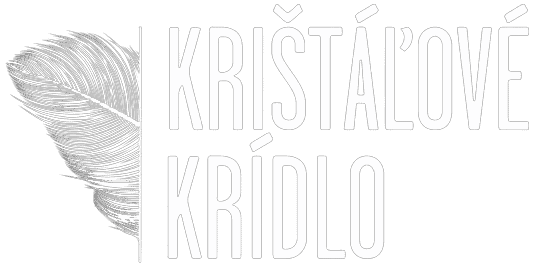I recently searched in Google for the rise of tribalism. The top set of results were pretty ominous, to say the least:
“Here’s how we solve the global crisis of tribalism and democratic decay” or “The politics of fear: How it manipulates us to tribalism.”
Tribalism has a bad reputation in today’s world, overshadowed by increasingly populism, fake news, and certain world leaders stoking fear in order to maintain power. One search for Tribalism and you are immediately pushed to think about how we are destroying society by joining these Political Tribes, and that’s a shame. Tribalism is on the rise, and this is not a bad thing.
One could even say, in a world in which populism and political tribalism reigns supreme, the mini-tribes that we have become so accustomed to in the past ten years, are helping us cope.
A contemporary view on tribalism
When I think about the person I was 10 years ago, I feel like I belonged to a bit of everything. My group of friends was numbered in the dozens, a mix of groups like university, high school, field hockey, bars, work, bars, travel folks. My taste in music was everything from 90s rap to Icelandic classical. I ate meat, fish, chicken, vegetables, and fruit. I would fly on any airline. I would watch any type of sport. Back then, I was using Whatsapp mostly to send my parents the occasional message. There was no Slack. Meetups weren’t really a thing. Facebook was dominant, and although I belonged to a few groups, this was just to show my interests to others.

Now in 2020, I feel as though I belong very strongly to a few things. I belong to a number of subsets in the Fintech Community. I go to the same bar in Berlin to watch Liverpool play (FC Magnet for all you folks who find yourself in Berlin for a Reds game), and know exactly where my crew will be sitting. I practice a very specific form of yoga 4 times a week, and sweat and support the same group of yogis every morning. I now only have three groups of friends: a small group of London girls, my core friends in Berlin, and my 5 friends I grew up with.
Now when I go to concerts, they are either nostalgic bands from the 90s, or strictly classical music. I no longer eat meat, and really only go to a few restaurants (and of course, I go to each with a different crew).
So what’s the difference? Why do I feel that today, I have these loyal mini-tribes? Why do I feel that my life is way more concentrated? What has changed in the last 10 years? Two things jump out at me to explain this: the way technology has changed the way we assimilate and communicate with each other and the sheer increase in consumer choice.
Technology
Technology has changed the way I am connected to people. In one day I can have virtual meetings with colleagues in California, speak to a supplier in Singapore and then interview a customer in Slovakia. I talk to my boyfriend on WhatsApp while flying at 30,000 feet on business trips. We can speak to anyone, anytime, and anywhere with the mass adoption of Whatsapp and Slack. The latter has been at the forefront of creating mini-tribes. Here are just a few examples of my Whatsapp Groups (no judgement please):
- Shovel Town (my girlfriends I grew up with)
- AYS Mysore (Mysore yoga students at an Ashtanga Shala in Berlin)
- Part Deux (London girlfriends)
- Fucked off with Fintech (Female Fintechers)
Slack: Within my members-only coworking space
- Designers Circle
- Fintech Circle
- Women’s Circle
- Designers Circle
Social media and messaging have made it literally a few click journey to join both a highly-niche tribe, and as many tribes of people with similar interests all around the world. This, combined with the fact that the world is constantly online, people are responding in real-time, constantly informing others of their movements, thoughts, pain, and concerns, has created a whole new wave of tribalism.

Pure choice
Today I am spoiled for choice in almost every aspect of my life. Thinking about the choice in relation to food, society today allows us to be very picky eaters. Ten years ago I practiced on and off vegetarian. The off-time was when it was just too difficult or time-consuming to find a vegetarian alternative that wasn’t a dull pasta or a bland salad. Today, I am a pescitarian, with so many choices of what to eat, where to eat and how to eat. Think about all the pop-up restaurants, the vegan-only cafes, the vegan only-gluten free-Asian cafes, the soughdough only pizza stalls. The choice is vast.
The closest restaurant to my apartment is a hummus shack. I literally mean shack. It’s owned by an Israeli who is also the chef, waiter, and chief comedian. He only makes hummus (and it’s damn good), but also prides himself on bringing together the hummus lovers all over Berlin. In the hummus shack, you talk to people, you exchange numbers, you find people with similar interests. Most of the folks are regulars, forming one of probably a few different hummus tribes in Berlin.
Belonging to tribes is nothing new. It is actually far from something new. However, what is new is the fact that we can be part of many tribes. What’s also new is the breadth of tribes available to us, driven by the fact we live in a world where we are spoiled for choice.

The tribal revolution
We are in the midst of a tribalism revolution. Way back in our cave-dwelling days we formed these tribes based on need — a need to outwit nature, a need to protect our beliefs, and our inherent need to connect. Today, we are joining tribes, and many of them, because we want to and because we can.
So where does banking fit into this?
As I write this in 2020, it feels as though I can call upon a tribe in almost any area of my life. Eating, exercising, innovating, fashion, travelling. But, there is one area which I feel like I really have no tribe: My financial life (yes, I am aware of the crypto community but for the sake of time I will not go down that rabbit hole). I am still the customer of a neo-bank with 5 million customers. I use an investment platform that is available to literally any type of investor. There is no way I can share and blend my financial life with my tribe members.
The biggest challenge I face in my financial life is obtaining a mortgage in Germany. As a freelancer, it is difficult (difficult may actually be an understatement) to get a mortgage if you have been freelancing for under three years. The banks require my income tax statements, which tend to be submitted 6-12 months after the year end, making the timeframe even longer. There are rarely any exceptions. I am extremely confident that my income from freelancing would easily qualify me for a mortgage here, given the property prices in Berlin. I feel as though I am missing out on the opportunity to purchase a flat in the city I love because there is no financial institution that supports the freelancer tribe.

Thinking about my other tribes, what would a bank focusing on yogis look like? How could this tie together my financial health with my actual health? What about a bank for Liverpool fans? Cashback towards merchandise, premium access based on premium cards?
These are only a handful of examples of where a bank, or financial institution that focussed on a tribe could make my life easier. In a world where we join more and more tribes, our profile as a customer will change also. We have experienced digital revolutions in banking, insurance, accommodation, and transportation. Our new wave of tribalism is a good thing.
We can lean on our tribes for support no matter where we or they are in the world. We can obtain support in real-time. We can learn and thrive in the new wave of tribalism. Who we are as customers is changing, and tribalism will be at the heart of this. It’s about time we kick start the customer segmentation revolution and launch tailored, relevant, supportive solutions that support the heart of the many tribes out there from sports teams, to gig-workers, to yogis.











